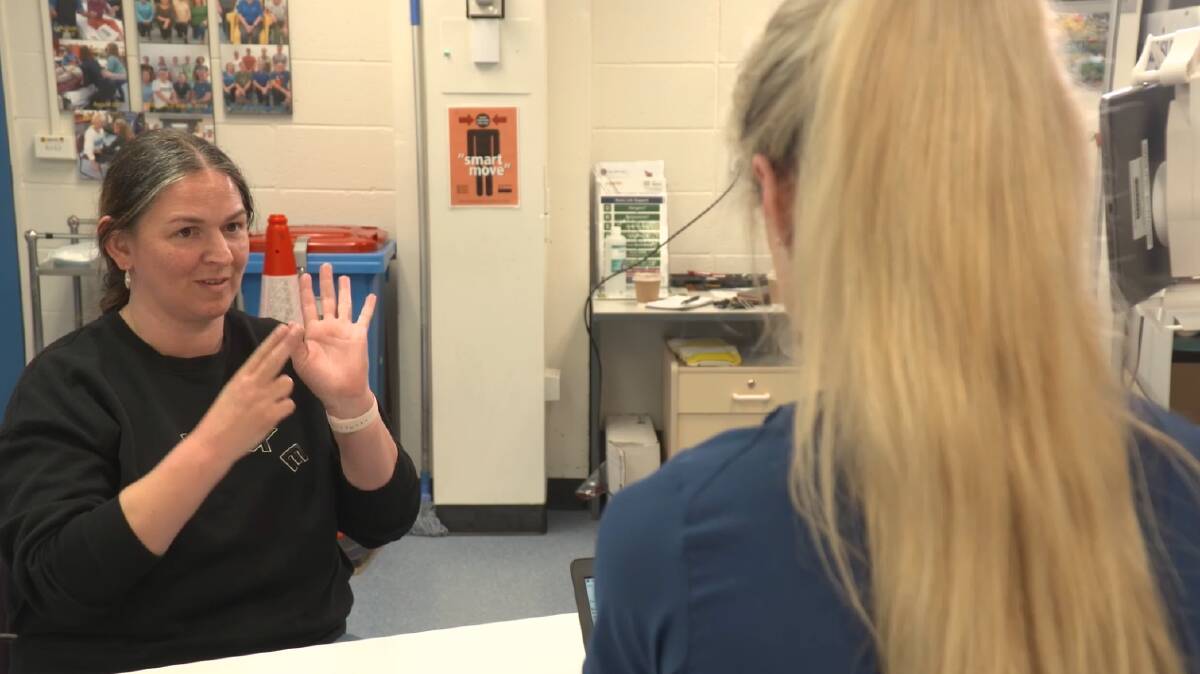
A new initiative at Albury Wodonga Health has been designed to give the deaf community better outcomes when it comes to health care.
Subscribe now for unlimited access.
or signup to continue reading
Expression Australia has partnered with Albury Wodonga Health to trial a new service for deaf patients.
The app was launched on Thursday to increase awareness of the deaf community among healthcare providers.
The program allows interpreters to speak to patients in the hospital through a tablet and Auslan app device via video communication.
Patients will be able to access the service to overcome language barriers through a communication toolkit for hospital triage. Communication cards will also be available when the video option isn't there.
Expression Australia CEO Nicky Long said the project was designed to improve the health care experiences of the deaf community.
"We are excited to be partnering with Albury Wodonga Heath through a project led by and for the deaf community," she said.
"We want people to culturally understand what it's like for deaf people and break down communication barriers.
"We feel like we're creating bridges in the gap with reassurance, support and expertise, and as an organisation, we want to be known for providing that.
"This is a co-design process improving deaf and hard of hearing Australians for equal and fair access, and we hope Albury Wodonga Health Influence hospitals nearby to support them in making the change."
Albury Wodonga Health disability liaison officer and physiotherapist Georgina Howard said participating in the Deaf Regional Health project would create a consistent approach across the region.
"We need to ensure that Auslan interpreters are readily accessible for deaf and hard of hearing clients," Ms Howard said. "That will improve their hospital experience and ensure informed consent is gained for their care."
The app will improve communication between healthcare staff and deaf patients.
Patient Stephen Nicholson said accessing health treatments made him uncomfortable with the lack of communication support. But with the program roll out, he would be better placed when attending the hospital and other healthcare appointments.
"It can be so frustrating and a scary experience," Mr Nicholson said. "I have to look after my pain and worry about how much I can understand what nurses and doctors are trying to tell me.
"Educating staff at hospitals and medical centres will help diversity ... It will mean they are better informed and able to support patients, regardless of disability."


